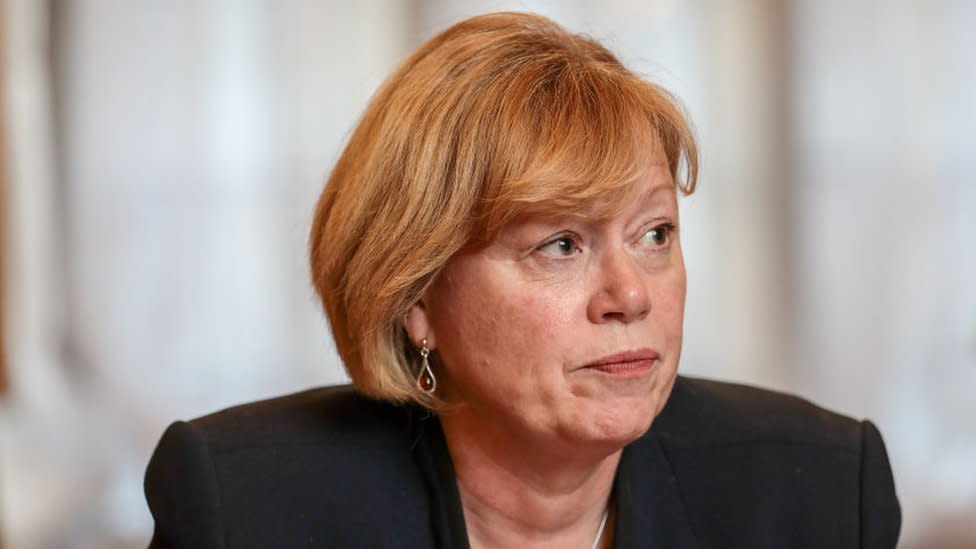Hard to justify hereditary peers, says Labour

Hereditary peers are likely to be finally phased out if Labour wins the general election, the party's leader in the House of Lords has indicated.
Baroness Smith said it was "hard to justify taking a place in the legislature on the basis of who your parents, grandparents etc were".
But the Tory leader in the Lords said there was not a strong case for change.
"You would throw out a lot of experience if you threw out all hereditary peers," Lord True told MPs.
There are more than 800 hereditary peers, who have inherited their title.
However, the number who have the right to sit in the House of Lords was capped at 92 by the last Labour government in a compromise deal, until an agreement could be reached to phase them out altogether.
They have continued to top-up their numbers by holding by-elections when one of them retires or dies. Only holders of hereditary peerages can stand in these by-elections and the electorate is made up of sitting members of the House of Lords.
Several attempts have been made to scrap the system over the years but it remains in place.
"They were only supposed to be temporary, they should have been finished a long time ago," Baroness Smith told the Commons Public Administration and Constitutional Affairs Committee.
But she stopped short of saying all 92 hereditary peers would be kicked out of the Lords immediately if Labour wins the election.
She told the committee she had an "open mind" about this - and said MPs would have to wait for Labour's election manifesto for full details of the party's plans to reform the Lords.
Labour leader Sir Keir Starmer is committed to abolishing the Lords in its current form and replacing it with an elected chamber - but the plan has already been watered down and is unlikely to be a top priority for an incoming Labour government.
Baroness Smith did promise that Labour would not pack the Lords with new peers, even though the Conservatives currently have 100 more than Labour.
"I can tell you a Labour government would not appoint hundreds of new peers." she told the committee.
She said Labour wanted to shrink the size of the Lords, which currently has 786 members. She believed it should be the same size or smaller than the Commons, which has 650 members, she told MPs.
But, at the same time, she said her "ideal" solution would be "roughly equal numbers" between the government and the main opposition party, which she said could be achieved over time.
Lord True said he was not "obsessed" with the number of peers, because many were not "professional" politicians and did not regularly take part in votes or debates.
"You never need sharp elbows to get a seat in the House of Lords," he told the committee.
But, he argued, many peers still had expertise to contribute and "if it is not a full-time house of professional politicians it has to be larger than the House of Commons for people to fulfil the roles".
He also cautioned against scrapping by-elections for hereditary peers.
"The hereditary peerage, whose average age is just under 70, would die out and you would be left with an all appointed house by accident."
Lord True made clear that his personal view - not that of the government - was that the House of Lords should be elected.
"But this is not the place where we find ourselves," he added.
"We find ourselves in a parliamentary system which operates well, in my judgement, and any next step should be considered carefully and considered collectively."

